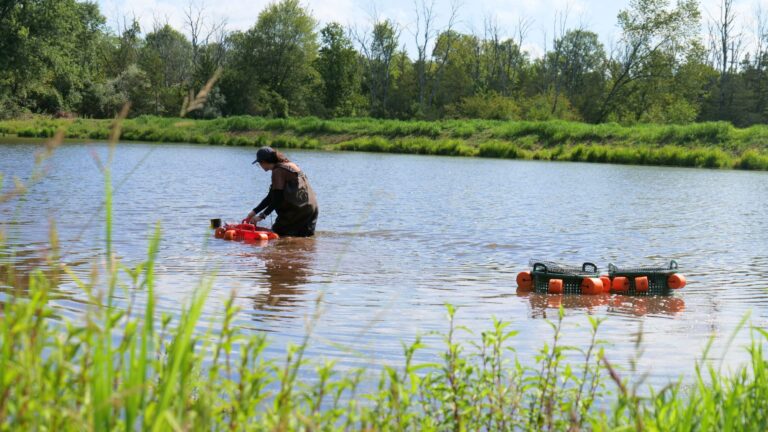
At first glance, mussels may not seem like environmental superheroes. But these small, unassuming freshwater animals are natural water filters—each adult mussel can filter between 8 and 15 gallons of water a day. By pulling in water and consuming tiny particles, they remove pollutants, algae, bacteria, and even cyanobacteria, the microorganisms responsible for harmful algal blooms (HABs).
That’s why the Partnership for the Delaware Estuary (PDE), with support from the NJ Sea Grant Consortium and others, has launched an exciting new project at Wargo Pond. The initiative aims to both improve water quality and establish brood stock populations of freshwater mussels that can help fuel future restoration projects across New Jersey, Pennsylvania, and Delaware.
This summer, three baskets containing 100 juvenile mussels each were introduced into Wargo Pond. Watershed Institute scientists will be monitoring their growth and survival each month, while also exploring how mussels may affect harmful algal blooms and overall pond biodiversity.
Although the immediate goal is simply to stock juvenile mussels, the potential impact is much greater. If successful, this project could show how mussels act as powerful allies in fighting HABs and improving water quality, while also laying the groundwork for large-scale mussel restoration in the region.
For now, Wargo Pond has some new residents—quietly at work, one gallon at a time, to keep the water clean and healthy for everyone.

